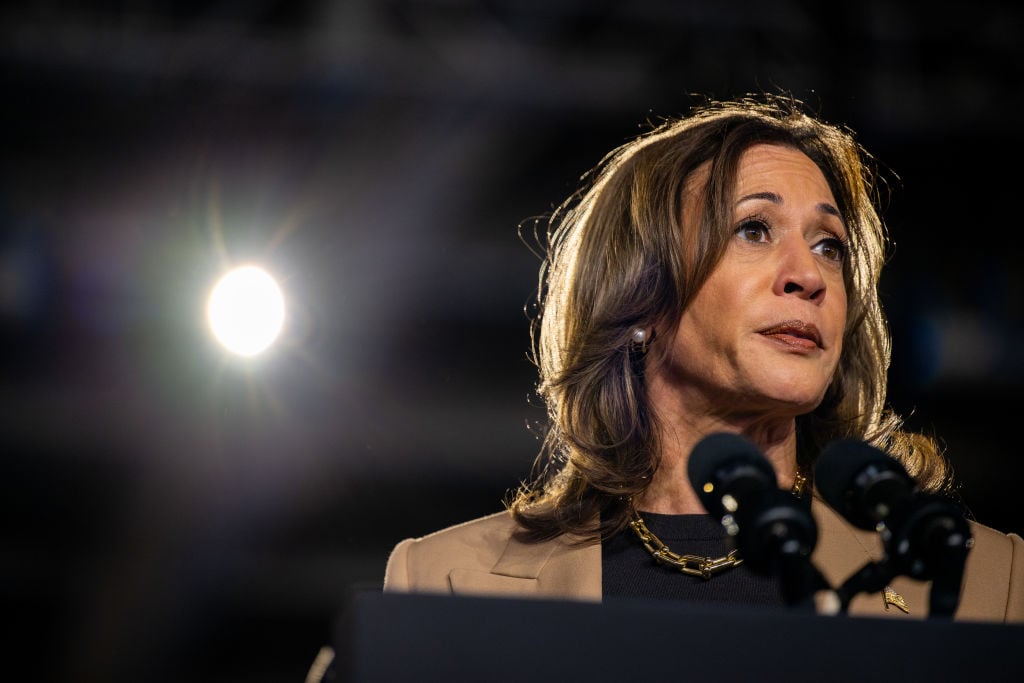On Wednesday evening, Kamala Harris sat down for an interview with Brett Baier on Fox News. It will likely be remembered as one of the most hostile interviews she has faced since her presidential run began. The interview occurred amid Trump’s escalating anti-transgender advertisements, which have totaled $20 million. Many expected the interview to include questions targeting transgender rights, especially as two prominent Democratic candidates have responded to the ads by adopting Republican talking points — moves widely seen as a betrayal of their LGBTQ+ constituents.
Harris, however, took a different approach. She reaffirmed her commitment to following the law, which requires that transgender inmates receive medically necessary care, which includes gender affirming care. When pressed further, she pushed back, comparing Trump’s disproportionate spending on this issue to his lack of focus on the larger issues affecting the American people.
In the lead-up to the question, the interview began with 10 minutes focused on immigration. During this segment, Harris was repeatedly interrupted. It quickly became clear that the interview would be adversarial, as Baier pressed her for an apology regarding the death of Laken Riley, a figure Republicans have used to promote anti-immigration stances. The two also clashed over the exact number of immigrants crossing the border, Walz’s stance on immigration, and Trump’s decision to kill a border bill.
Then, in the second question of the interview, Baier pivoted to the topic of anti-trans advertisements. “Many viewers, especially here in Pennsylvania, are inundated with commercials and ads. They just want it to stop because it’s in every commercial. Many of them add noise, but a few break through. This particular one from the Trump campaign has gotten a lot of attention,” Baier said, before playing an anti-trans advertisement from the Trump campaign about inmate access to gender-affirming care.
Following the ad, Baier asked, “Are you still in support of using taxpayer dollars to transition to another gender?” Harris responded, “I will follow the law, and it’s a law that Donald Trump actually followed… these surgeries are available to, on a medical necessity basis, people in the federal prison system.”
When asked if she would continue to advocate for using taxpayer dollars, Harris responded, “He spent $20 million on those ads, trying to create a sense of fear in the voters because he actually has no plan in this election that is about focusing on the needs of the American people. $20 million on that ad, on an issue that, as it relates to the biggest issues that affect the American people, is really quite remote.”
Baier quickly moved on, a markedly different result from other instances where Democrats have been pressed on transgender questions.
The exchange was notable, as it followed two prominent Democratic candidates who, when faced with similar anti-trans advertisements, took different approaches widely seen as reinforcing Republican messages about transgender people. Last week, Collin Allred released an ad responding to the anti-trans ads against him, claiming that he “did not support boys in girls’ sports.” In his debate with Ted Cruz, Allred was confronted with his support for the Equality Act and his opposition to the “Protection of Women and Girls in Sports Bill” — a bill that would ban transgender athletes from competing in sports. During the debate, he appeared somewhat flustered and erratic and reaffirmed his stance against “boys in girls’ sports” when asked about his support for transgender participation in sports.
Similarly, Ohio candidate for U.S. Senate Sherrod Brown released an advertisement that included a fact-check asserting he “did not support transgender biological men in women’s sports.” Both candidates faced backlash from the transgender community, which pointed out that their statements echoed harmful Republican messaging by framing trans girls as “boys.”
Harris’ approach was notably different. She did not back down from supporting medically necessary care for transgender inmates. She then pivoted to emphasize the lack of salience the issue has — a key finding in many polls on transgender rights. Polls consistently show that people rank transgender issues near the bottom of their list of concerns and believe the government should stay out of such matters. In fact, many voters feel motivated to oppose politicians who often target transgender people. In just two minutes, during a hostile interview with a Fox News host, Harris shut down the line of questioning, despite Republicans spending over $80 million in key races on such advertising. She did so without ceding ground, unlike Brown and Allred.
She likely took this approach after being advised on the historical failure of anti-trans campaigning. Similar campaigns were run in 2022 and 2023 in Wisconsin’s Supreme Court election, legislative races in Pennsylvania and Virginia, Georgia’s Herschel Walker vs. Raphael Warnock election, Andy Beshear’s reelection in Kentucky, and the 2023 losses of 70% of Moms for Liberty and Project 1776 school board candidates across the U.S.
Given the success of Harris’ approach, other Democrats in tight races facing similar advertising blitzes may follow suit, contrasting the extreme spending on anti-trans ads with more pressing issues like the economy, defending democracy, and abortion rights. If Harris and other Democrats win by doing so — especially in the face of the most anti-trans ads in history — Republicans may be forced to reconsider the effectiveness of this tactic moving forward.
This piece was republished with permission from Erin In The Morning.
Matching Opportunity Extended: Please support Truthout today!
Our end-of-year fundraiser is over, but our donation matching opportunity has been extended! All donations to Truthout will be matched dollar for dollar for a limited time.
Your one-time gift today will be matched immediately. Your monthly donation will be matched for the whole first year, doubling your impact.
This matching gift comes at a critical time. As Trump attempts to silence dissenting voices and oppositional nonprofits, reader support is our best defense against the right-wing agenda.
Help Truthout confront Trump’s fascism in 2026, and have your donation matched now!
